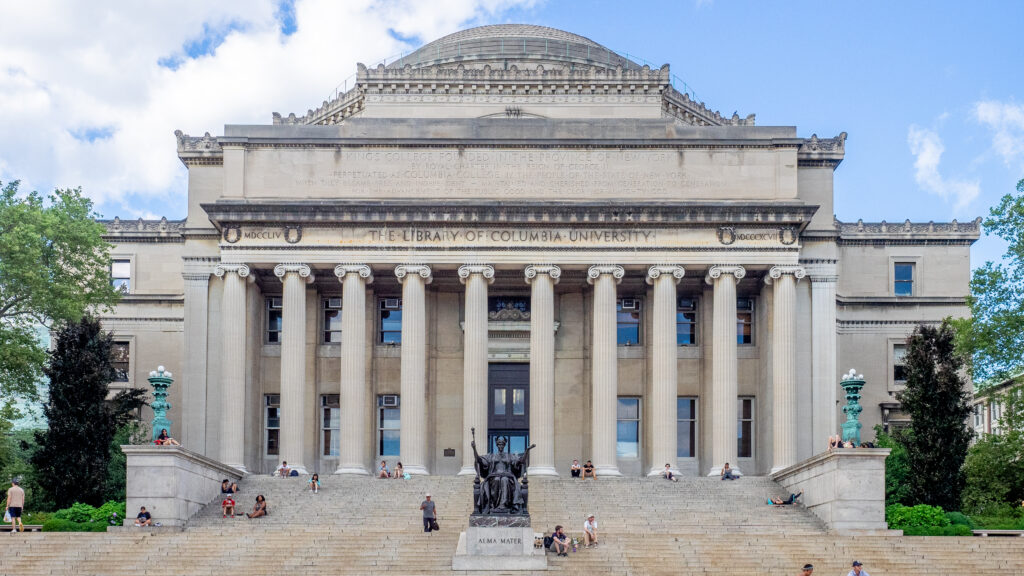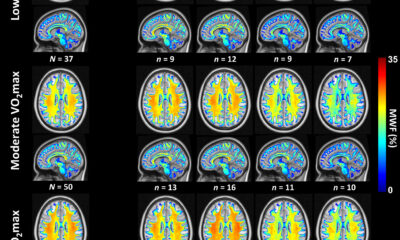Health
Columbia University gets $400 million for risky biomedical research

Columbia University announced Thursday that its medical school has received $400 million to fund a new institute for basic biomedical research to fuel future discoveries that could improve human health and lead to new drug discoveries.
The gift, from Columbia alumni Roy and Diana Vagelos, is the largest donation given to the school and brings the total the couple has given to Columbia since 2010 to $900 million. Roy Vagelos is widely known in medicine as the former chairman and CEO of the drug manufacturer Merck.
The new gift will fund the Roy and Diana Vagelos Institute for Biomedical Sciences, which will support the recruitment of researchers and fund research in areas such as cell technology and gene therapies, especially projects that can be risky and may take years or decades to pay off. of work.
“It is always tempting in science to focus on incremental advances that can be done safely, NIH funded, and will lead to immediate publications,” Samuel Sternberg, an HHMI researcher and associate professor of biochemistry and molecular biophysics, told STAT.
“I didn’t have to worry about being productive that first year,” Sternberg said. “I could dream big.”
Sternberg, who received his Ph.D. with CRISPR pioneer Jennifer Doudna of the University of California, Berkeley, said the Vagelos funding brought a startup and groundbreaking mentality to Columbia, something he said he has seen at institutions in California and Boston, but not necessarily in New York .
“It’s important to have the flexibility to really think big and think about things that are feasible five or 10 years into the future. What can we dream of in the world of cell and gene therapy?” he said. He added that he thought the insight Vagelos could provide from his long experience in drug development could help accelerate the translation of basic research into tangible cures. “It’s not just supporting research with money, it’s his energy and spirit,” he said.
Columbia’s interim president, Katrina Armstrong, called the gift historic, saying in a statement that it will “enable us to build the world’s premier ecosystem for biomedical research and attract the next generation of exceptionally creative and collaborative scientists .”
The couple’s previous donations to the school include a 2023 gift of $175 million to launch the Vagelos Institute for Biomedical Research Education, which supports faculty and doctoral students in pursuing higher-risk projects that may not be supported elsewhere. In 2017, the couple donated $100 million to support work in precision medicine and another $150 million to eliminate loans for Columbia medical students who qualify for financial aid — a form of philanthropy that has since repeated at other medical schools in an effort to make medical education more affordable. Columbia’s medical school, the Vagelos College of Physicians and Surgeons, is also named in their honor.
The child of Greek immigrants who received his education through scholarships, Vagelos received his medical degree from Columbia in 1954; There he met Diana, who graduated from Barnard College and had long supported causes in women’s health and the arts. He has had a long and storied career, authoring more than 100 scientific articles, working at the National Institutes of Health on lipid metabolism research, and serving as chairman of the Department of Biochemistry and Molecular Biophysics at Washington University in St. Louis .
After leaving academia, Vagelos spent 19 years at Merck, headquartered in his hometown of Rahway, NJ, where he became chairman and CEO. He is known for encouraging the company to make its river blindness treatment, ivermectin, free to African countries that could not afford the drug’s high price. He served as chairman of the board of Regeneron Pharmaceuticals for 30 years before retiring last year.
“Diana and I want to help create an environment where generations of scientists can make discoveries that address the most challenging problems in healthcare and medicine,” Roy Vagelos said in a statement. “We anticipate that this institute will remove barriers for talented individuals so they can learn, collaborate, innovate and explore the important questions in biomedical science that they are most passionate about. This is what inspired my career and I hope we can provide the same opportunities for others.”
Vagelos is now 94, but shows no signs of slowing down. He is a fixture at Columbia’s biochemistry department retreats — sitting in the front row and furiously taking notes — and regularly calls Sternberg to bombard him with questions about his latest research. “I was at his 90th birthday several years ago,” Sternberg said. “I’ve seen his energy increase since then.”













